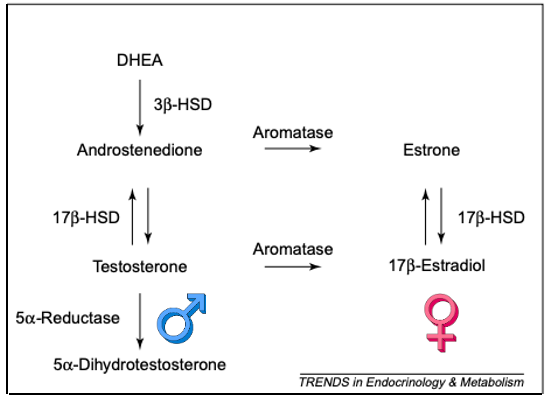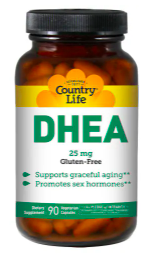It's been said that women will do almost anything to look good. If that’s true, they can’t even compete with some male bodybuilders who take legal drugs, illegal drugs, and down another substance you might find distasteful. Perhaps disgusting. And it doesn't even work. Unreal.

Some self-absorbed gym rats will go to extreme lengths to look like bigger idiots more ripped than the other self-absorbed gym rats scurrying around. Sort of like male peacocks attracting females by preening with their feathers on full display. For many men, bodybuilding is an obsession, maybe even a sickness. Some of these guys are willing to do just about anything to look "better," even if it means turning themselves into muscle-bound chemistry labs. All that is required is Internet access and a credit card.
The number of anabolic (muscle-building) products available online is staggering. If you Google "muscle building supplements" you'll be rewarded with 410,000 hits. Leave out the quotation marks and that number burgeons to 90 million. Pretty crazy, right? And it's not just the gargantuan number that makes for an intriguing story; it's what these guys are putting into their bodies. Here are three examples:
1. Possibly legal but dangerous prescription anabolic steroids
A number of companies, including Male eXCEL, will happily sell you testosterone, an anabolic steroid bodybuilding supplement, and a damn dangerous drug if used improperly (1). Although testosterone "replacement therapy" requires a prescription, Male eXCEL advertises: "While online and traditional TRT clinics can cost upwards of $500 for the initial consult, we offer the same care and bioidentical treatment at a price most can afford.
Here's the image in my head: Some doctor on the phone, who may or may not be awake, will ask a few questions, perhaps to determine how well your petey is working, and bingo—there's your prescription.
But testosterone supplementation when you don't need it is a royally bad idea; it's not a replacement at all, it's an overload—with health consequences. Although the drug builds muscle mass, some of the downsides that come along with taking it outweigh the benefits, and not by a little. According to Healthline, the risks of boosting normal levels of testosterone include:
- Increased risk of heart disease
- Aggressive behavior
- Distorted body image
- Liver damage
- Gynecomastia (male breast growth)
- Shrinking testes
- Infertility (decreased sperm production)
- Male pattern baldness
Is it worth it? Your call, muscle heads.
2. OTC testosterone precursors that shouldn't be OTC. Or sold at all.
Both GNC and The Vitamin Shoppe, for reasons I am fully unable to comprehend, are allowed to sell DHEA (dehydroepiandrosterone), a testosterone precursor, which is also an anabolic steroid that is banned by the World Anti-Doping Agency It can also be found in supermarkets. Seriously? A powerful sex hormone in the Centrum aisle?
To be fair, DHEA is FDA-approved, but only for postmenopausal women who experience vulvar and vaginal atrophy (VVA), a condition caused by insufficient estrogen, which results in vaginal dryness and painful intercourse. Just to be fair, I suppose we should cut male bodybuilders with dry vaginas who wish to take the stuff a break if only to undermine the oppressive binary system.
Intrarosa, the brand name for DHEA, is a testosterone precursor and more. A look at the metabolism of DHEA (Figure 1) explains one of the reasons that men ought to think twice before taking the stuff. DHEA is not only metabolized to form testosterone but also forms the female sexual hormones estrone and estradiol.

Figure 1. DHEA is metabolized to form both male and female sex hormones. Original source: Trends in Endocrinology & Metabolism.
The Mayo Clinic lists the risks of taking DHEA:
- Increased levels of androgen
- Might increase the risk of hormone-sensitive cancers, including prostate, breast, and ovarian cancers.
- If you have any form of cancer or are at risk of cancer, don't use DHEA.
- Acne
- Hair growth in women (hirsutism).
- Possible reduction of high-density lipoprotein (HDL) – the "good," cholesterol.
- Worsening psychiatric disorders, e.g., an increase in the risk of mania in people who have mood disorders.
Could Kroger possibly sell an anabolic steroid drug, which has been approved by the FDA only for niche uses?

Yup. Image credit: Kroger
3. Saving the worst for last... breast milk.
Although this nasty practice has been around for about a decade, it's now catching fire now. Yes, men – for a variety of reasons – are buying breast milk on the internet and swigging it down in a futile attempt to become more muscular. But some drink it, uh, for other reasons (time out - I need to hurl).
In wealthy countries, little of the milk that is sold is used to feed babies... Those buying milk tend to be adult men who want it to assist with bodybuilding or for sexual reasons. (1)
— Nutrition expert Karleen Gribble in an interview with Julie Bindel at UnHerd
Yes, while breast milk is mostly used (for no good reason) for bodybuilding, there is a collection of pervs and other assorted deviants that crave breast milk for sexual purposes that are limited only by your own imagination.
Angela Dowden, a former nutrition writer for ACSH, pulls no punches in describing her distaste for the practice:
Ugh, yes that feels definitely creepy… Breast milk is a great food for babies with protein, fat, sugar, vitamins and minerals, plus antibodies, hormones and growth factors. In fact a mom’s breast milk will be tailored to her own baby — as an example when either is exposed to a new bacteria or virus the anti-ineffective properties of the milk with change to protect the baby. And if it isn’t from an official breast bank, it could be contaminated, including with HIV or illegal drugs (3). If it is a legit source that’s questionable too given there’s already often a shortage for the premature babies who do actually need it.
There’s no evidence that adults can get health benefits from breast milk and nothing about its composition would suggest it’s either good for muscle building or (double ugh) as an aid to sexual performance.
Why do men do this?
Beats the hell out of me. Let's ask them...
“It gives me incredible energy I don’t get from other food and drinks...I always compensate the women I buy from...And pretty nicely, too."
Anthony from Queens, a self-acknowledged breast milk spendthrift
“All I’ll say is it’s a fetish for me.”
A master of the obvious, who describes himself as a “nice, harmless man in New Jersey seeking breast milk from healthy, non-smoking mom.” This was posted on the Only the Breast website. I guess we all have standards.
“I screen the producers by getting their medical records, and I meet them in person to make sure they don’t have needle marks…I will not buy via mail, UPS, or FedEx.”
Anon, who is nothing if not thorough in pursuing his fetish.
And don't go to this guy's house for dinner...
“I always drank breast milk. I like it, but I never fully realized its potential as a supplement until I started using it as the cornerstone of my diet...”
- Lefticle, a bodybuilder (Lefticle could not finish the quote since he had to go spit up.)
Just another day in the hustle for muscle and yet another critical topic from the Masters of Information at ACSH.
NOTES:
(1) Properly means in cases where some men, especially as they age, will suffer from abnormally low levels of testosterone. Replacement therapy is indicated in this case.
(2) Bindel's article is anything but humorous. She reports that poor women in undeveloped countries are treated like cows, being paid pennies while their milk is extracted, sometimes at the expense of their own children, so that wealthy American men can build their muscles. Or their other muscle. If this causes your opinion of humanity to drop by a few points, you're unlikely to be alone.
(3) Additionally, breast milk can carry with it a variety of pathogens, including hepatitis B, hepatitis C, HIV, and syphilis. And this is not rare; a 2015 study found that 93% of commercial breast milk contained measurement quantities of bacteria.
